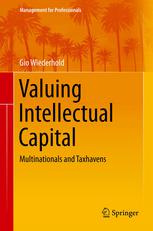

Most ebook files are in PDF format, so you can easily read them using various software such as Foxit Reader or directly on the Google Chrome browser.
Some ebook files are released by publishers in other formats such as .awz, .mobi, .epub, .fb2, etc. You may need to install specific software to read these formats on mobile/PC, such as Calibre.
Please read the tutorial at this link: https://ebookbell.com/faq
We offer FREE conversion to the popular formats you request; however, this may take some time. Therefore, right after payment, please email us, and we will try to provide the service as quickly as possible.
For some exceptional file formats or broken links (if any), please refrain from opening any disputes. Instead, email us first, and we will try to assist within a maximum of 6 hours.
EbookBell Team

0.0
0 reviewsValuing Intellectual Capital provides readers with prescriptive strategies and practical insights for estimating the value of intellectual property (IP) and the people who create that IP within multinational companies. This book addresses the crucial topic of taxation from a rigorous and quantitative perspective, backed by experience and original research that illustrates how large corporations need to measure the worth of their intangible assets. Each method in the text is applied through the lens of a model corporation, in order for readers to understand and quantify the operation of a real-world multinational enterprise and pinpoint how companies easily misvalue their intellectual capital when transferring IP rights to offshore tax havens. The effect contributes to the issues that can lead to budgetary crises, such as the so-called “fiscal cliff” that was partially averted by passage of the American Taxpayer Relief Act on New Year’s day 2013. This book also features a chapter containing recommendations for a fair and balanced corporate tax structure free of misvaluation and questionable mechanisms.
CFOs, corporate auditors, corporate financial analysts, corporate financial planners, economists, and journalists working with issues of taxation will benefit from the concepts and background presented in the book. The material clearly indicates how a trustworthy valuation of intellectual capital allows a realistic assessment of a company’s income, earnings, and obligations. Because of the intense interest in the topic of corporate tax avoidance the material is organized to be accessible to a broad audience.